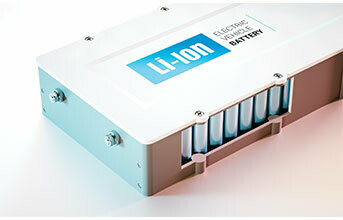
The rising adoption of EVs, increasing renewable energy installations, and the need for energy storage solutions have significantly contributed to the creation of a vast market for batteries in India. According to a study the EV battery demand in India is expected to reach 15 GWh by 2025 and 60 GWh by 2030.
However, meeting this demand will be no less than a challenge, given India is largely dependent on foreign countries such as China for raw materials and EV components. With the growing demand for EVs in the country, it is the need of the hour to look into domestic manufacturing of batteries including li-ion and other chemistries.
If we closely look, in EVs, "the battery serves as the most significant and costly component, accounting nearly 40 per cent price of the vehicle. This is primarily because India imports cells from China and the expenditure with respect to their logistics is high. In the long term, if China further increases the price of cells or if the country faces an issue with respect to its logistics, there is not much we can do to combat the situation then," said Vikas Aggarwal, MD iPower Batteries. "If we aim to achieve quicker EV adoption, this dependence needs to be eliminated, and India needs to manufacture cells indigenously," he added.
Agreeing with Aggarwal's point of view, Pankaj Sharma, Co-Founder and Director at Log9 Materials too emphasised on establishing indigenous supply chain within the EV sector. He says, "Localisation of EV supply chain will reduce our dependency on the neighbouring countries and take us closer towards our ambition of energy independence. It will also eventually lower the costs of EVs, thus boosting mass adoption of electric vehicles across all segments (2Ws, 3Ws, and 4Ws)." Sharma also highlighted about the impact of domestic manufacturing on economic development. According to him "reduced dependency for imports will drastically lower trade deficits, thereby improving the country's economy. It will also reduce geopolitical tension, minimise supply chain disruptions and improve trade agreements."
While developing a robust supply chain ecosystem is the need of the hour for EVs in India, battery manufacturers, on the other hand, highlighted the requisites and efforts they are taking to strengthen domestic cell manufacturing.
Battery recycling
As India's battery market continues to grow, the scope for battery recycling is expected to expand significantly. By embracing battery recycling and investing in infrastructure, technology, and public awareness can effectively manage battery waste, reduce pollution, and recover valuable resources.
In India, several companies are actively engaged in exploring the second life of lithium batteries. "The recycled lithium batteries are anticipated to find utility in stand-alone energy storage solutions or will be used in EVs with limited range, especially in Tier-2 and Tier3 cities and towns where price is a significant constraint in the adoption of EVs," claims Aggarwal.
Improving energy density of batteries
Improving the energy density of electric vehicles (EVs) in India is crucial for enhancing their range and performance.
Log9 Materials is moving towards advanced Titanate-based anode technologies with 2x charge capacity which would provide better rate and higher energy density than the LTO. Shedding more details about this technology, Sharma, informed "The team is working on LFP cell chemistry with cooling management systems that will support fast charging. Log9 is further working on materials that will help improve the energy density with a no-cobalt chemistry, thus increasing the average cell voltage of system anodes. We have developed a product strategy that focuses on materials study to improve the energy density with no-cobalt concepts that minimises the use critical raw materials."
In terms of improving energy density, iPower Batteries has launched LMFP batteries. "These batteries offer a high energy density comparable to NMC batteries while maintaining the safety characteristics of LFP batteries," notifies Aggarwal.



























